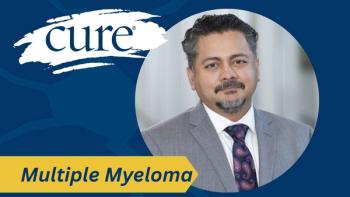
Living in the New Normal and Facing the Stigma of Lung Cancer
From the time my wife was diagnosed, people asked if she smoked. If the answer was yes, would that make it OK that she was sick?
A few weeks ago, I was asked to write for CURE and to be totally honest, I didn’t know that I wanted to do it. I started a blog eight months after Molly was diagnosed and, at that time, I found writing to be therapeutic. But as time went by and the reality of cancer kicked in, I didn’t want to write about it anymore.
On my first article we talked about the
From the time of Molly was diagnosed, people asked if she smoked. This was a tough question. Molly never smoked or lived in a smoking house, but the fundamental of this question is wrong. If the answer was yes, would that make it OK that she was sick?
It is hard to get mad at people for believing that lung cancer is a smoker’s disease. I believed the same thing before we knew better. The smoking stigma was created to deter people from smoking, but the collateral damage has been that patients being blamed for their own disease. Lung cancer is one of the lowest funded cancers despite being the
Fighting this stigma was the no. 1 reason why we opened our private lives to cameras and why I decided to write again. Again, as Deanna said, it is "the right thing to do."
Today, as I am typing this article another wife lost her husband and three children lost their father. I dare you to look in their eyes and ask them if their father smoked.




